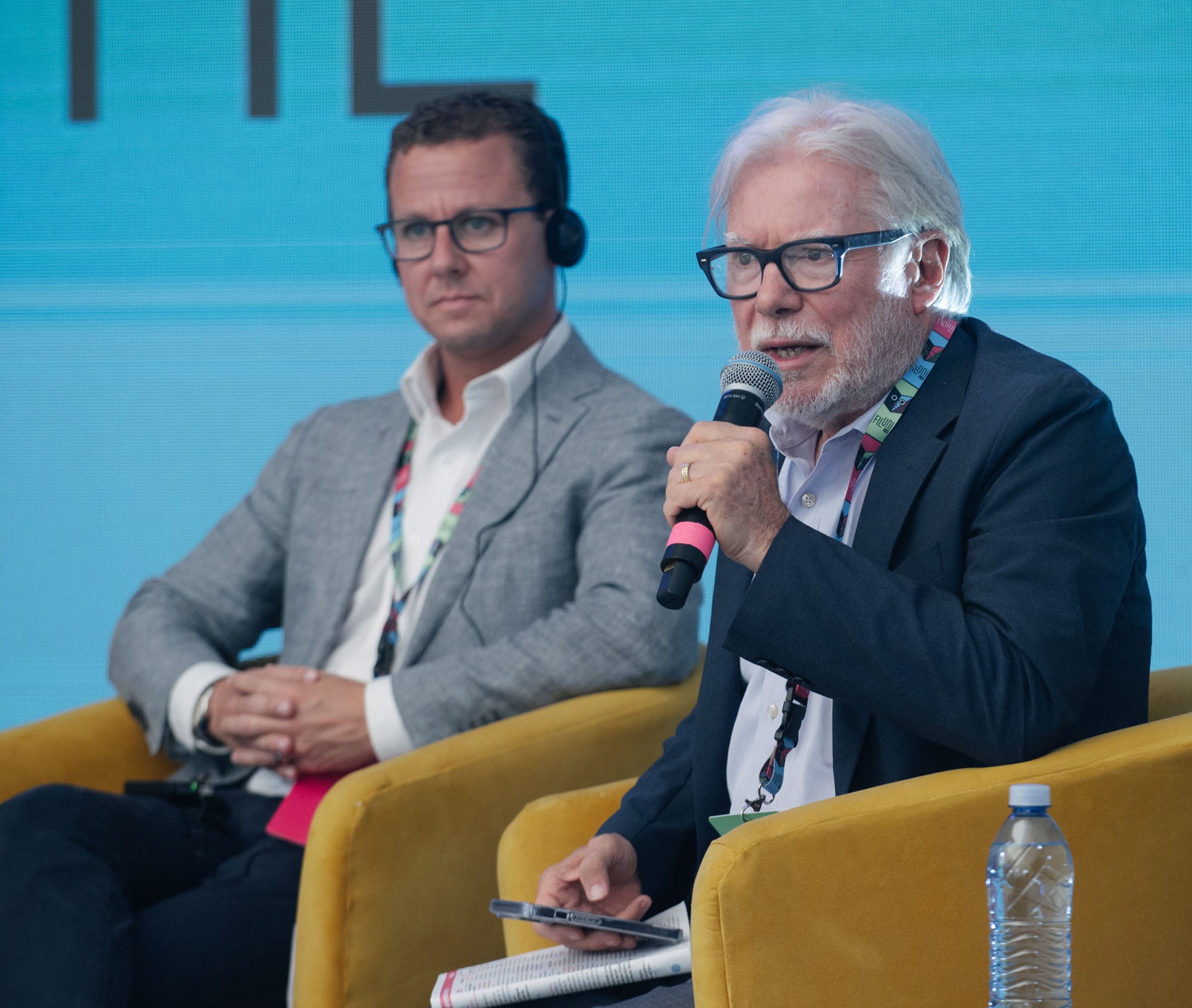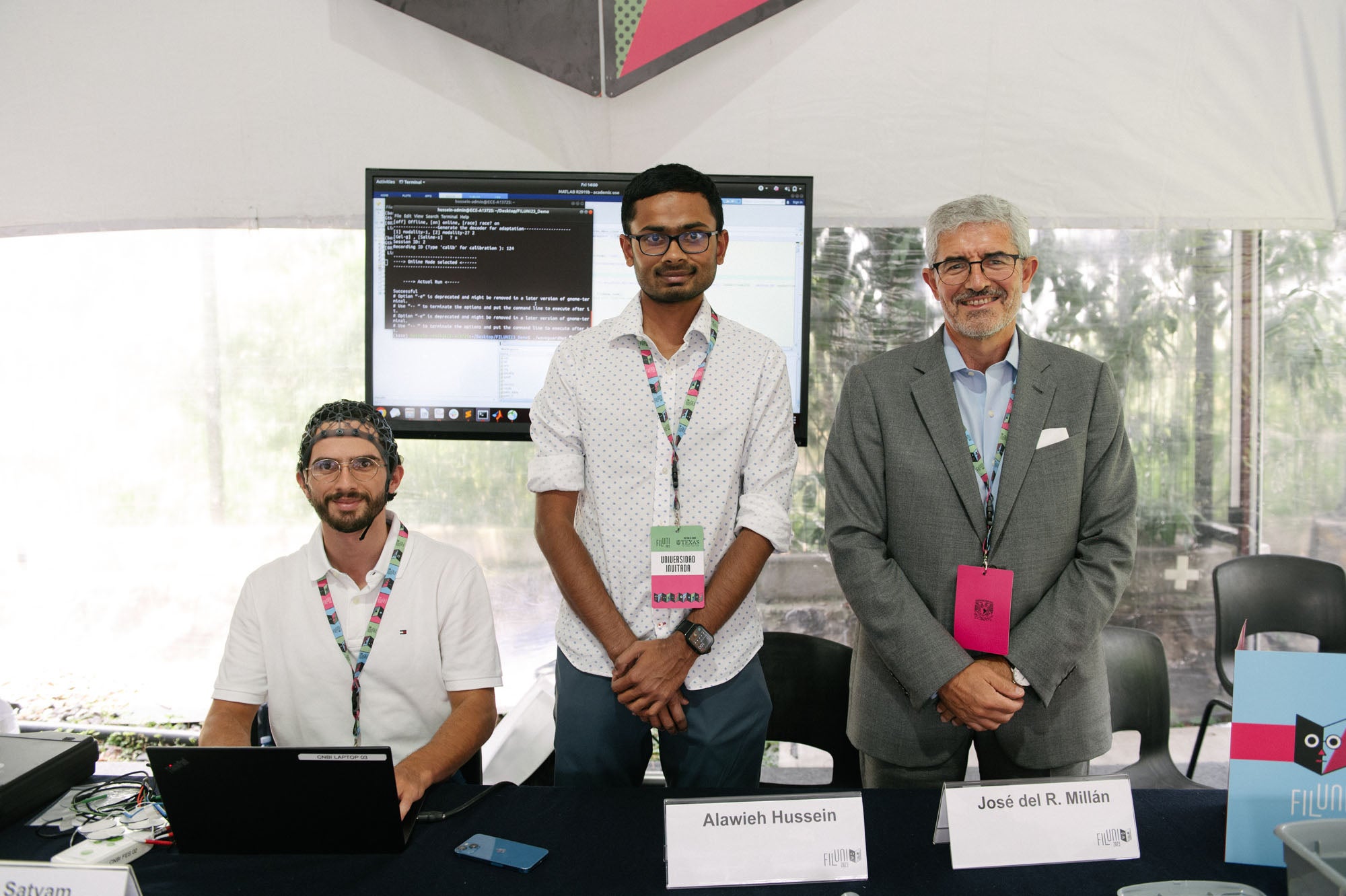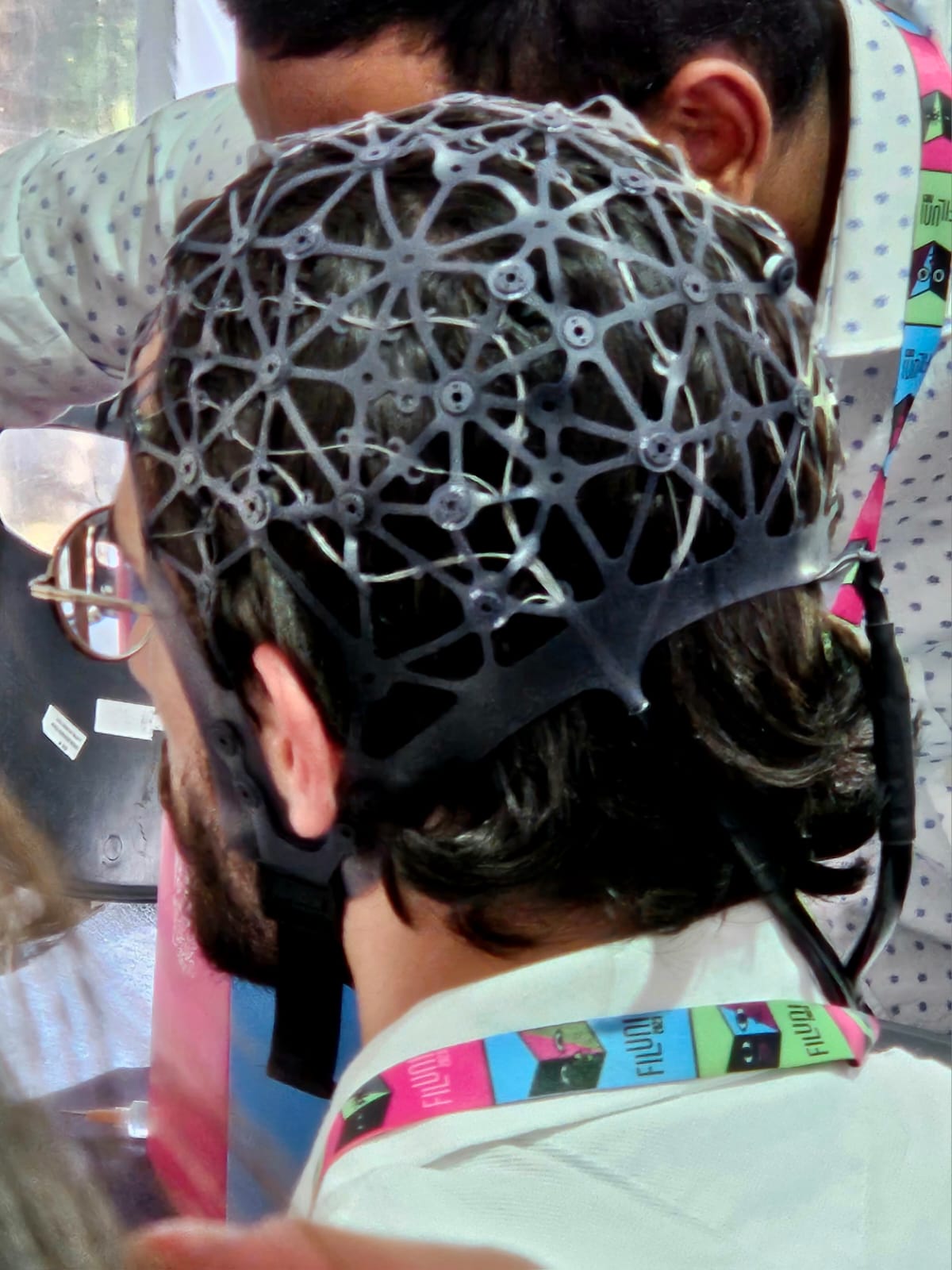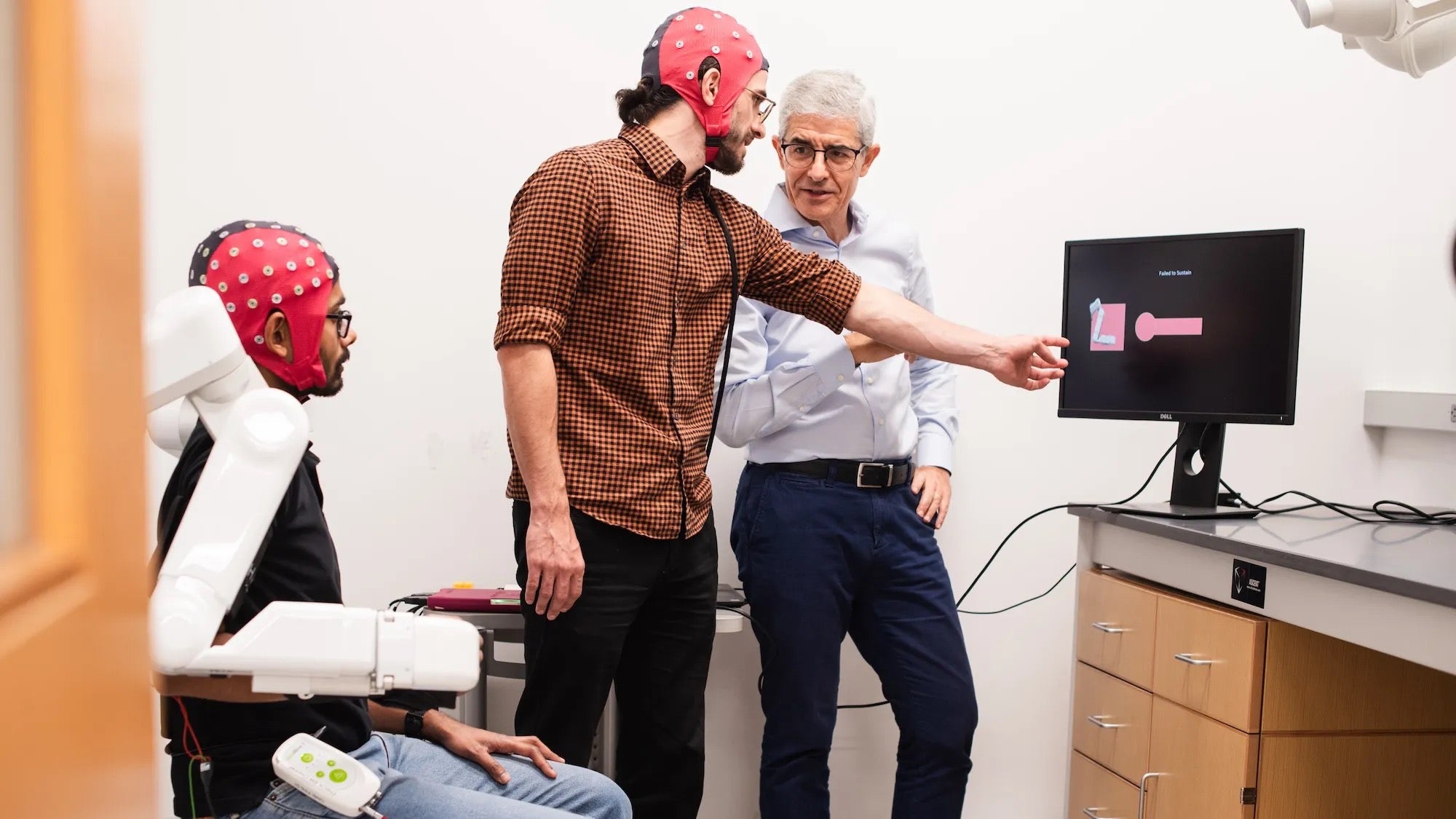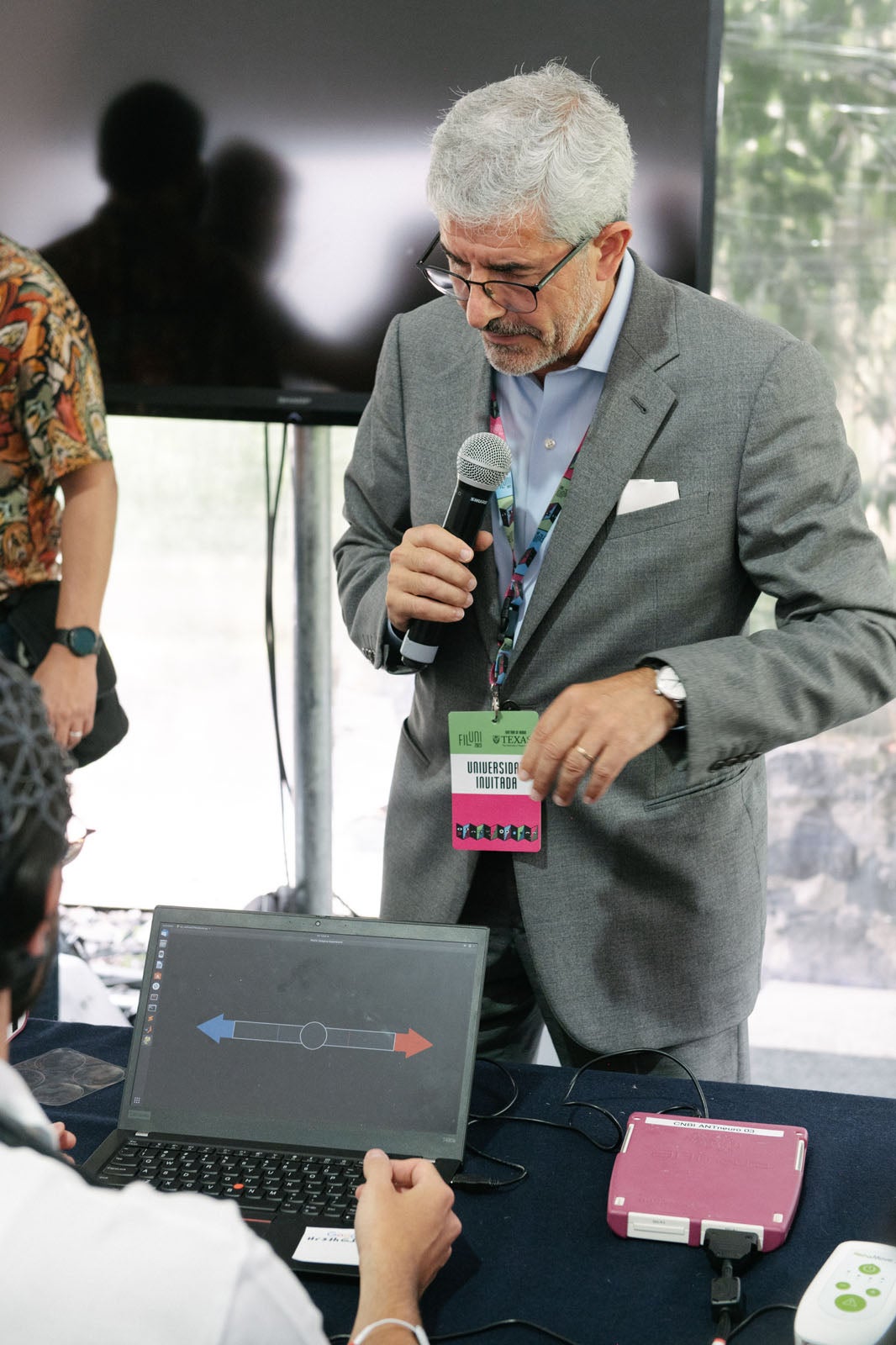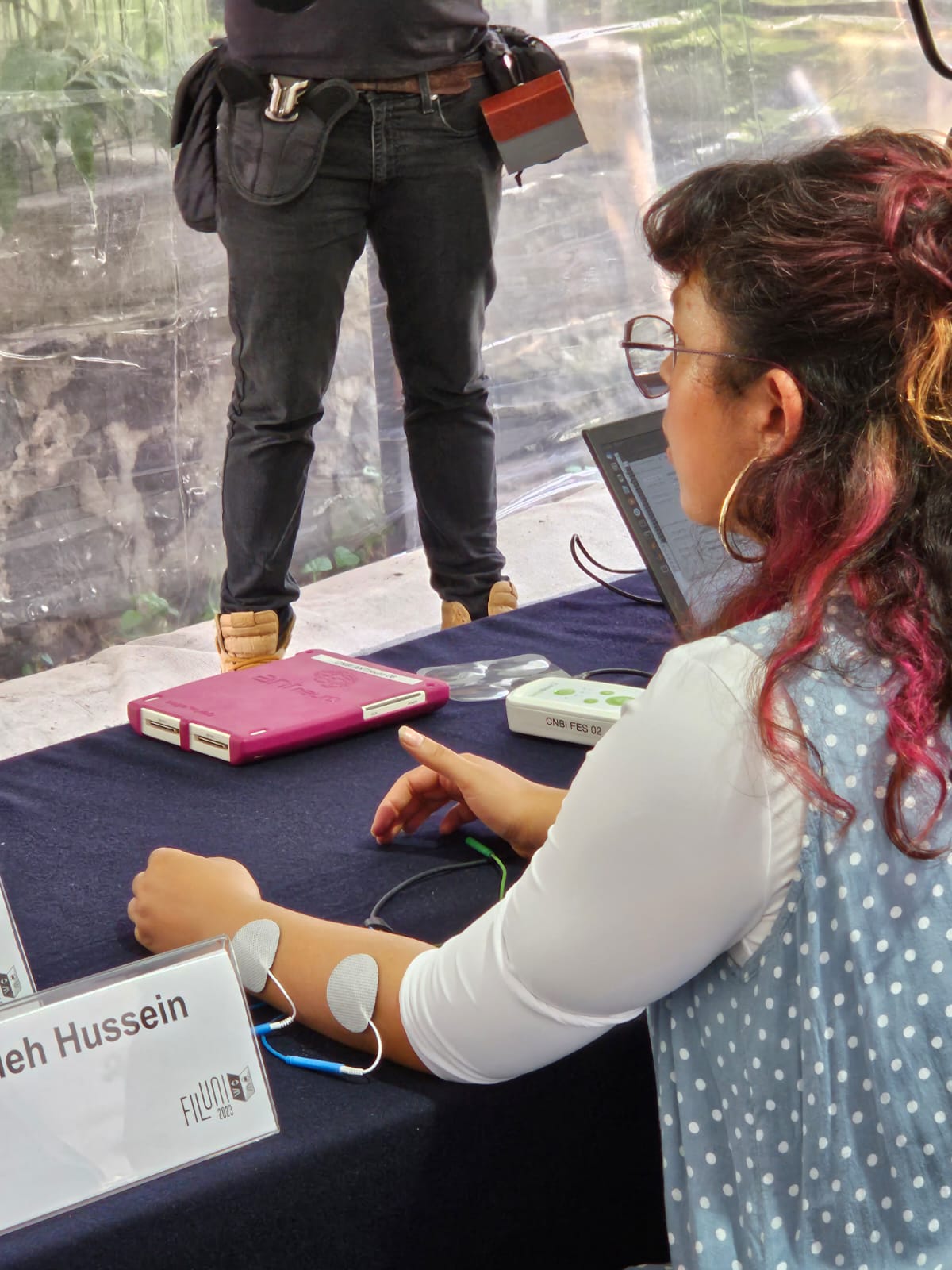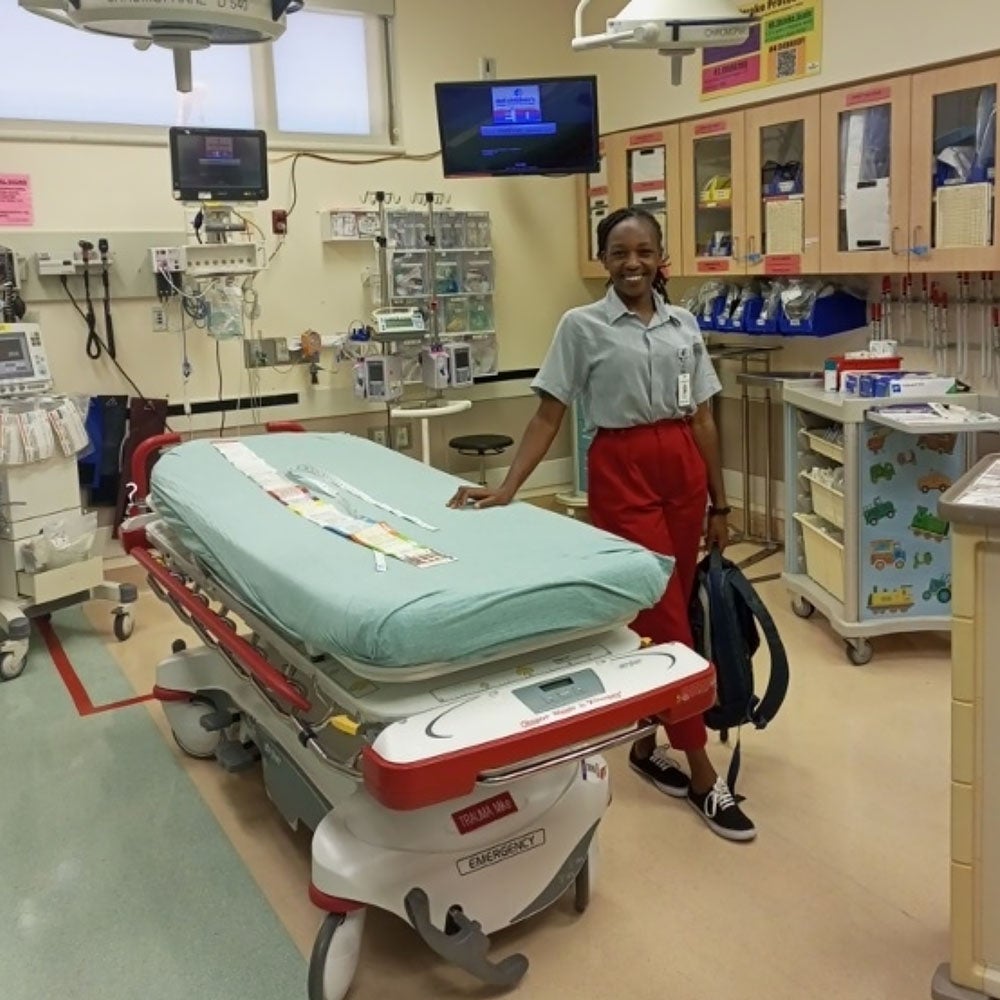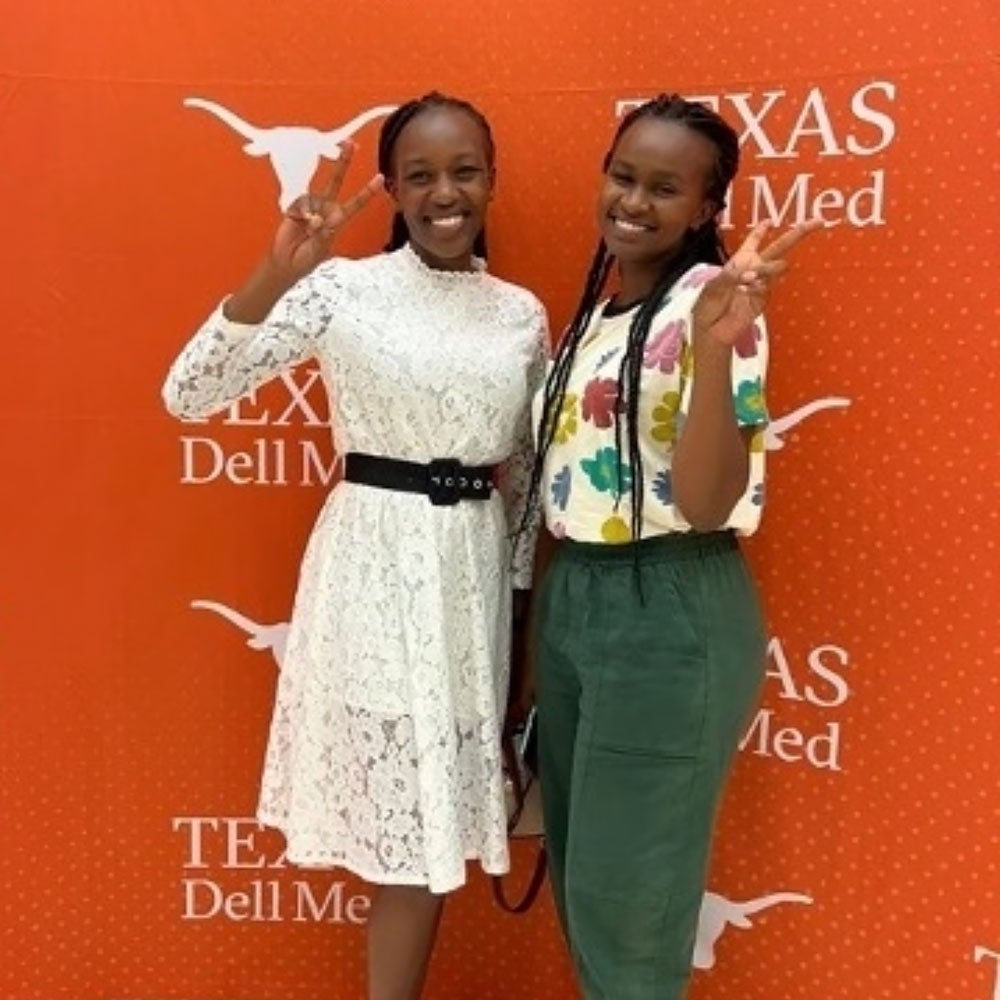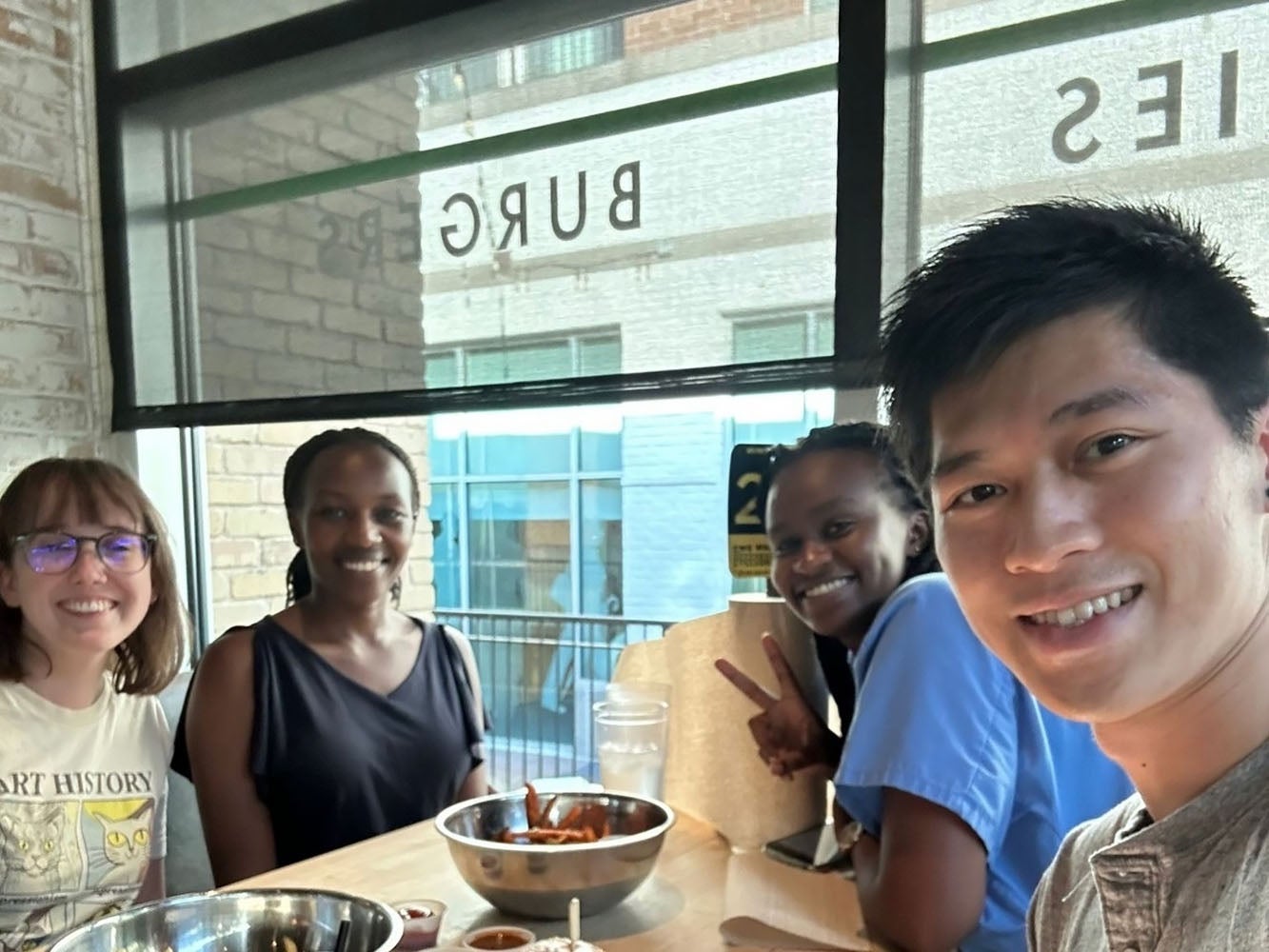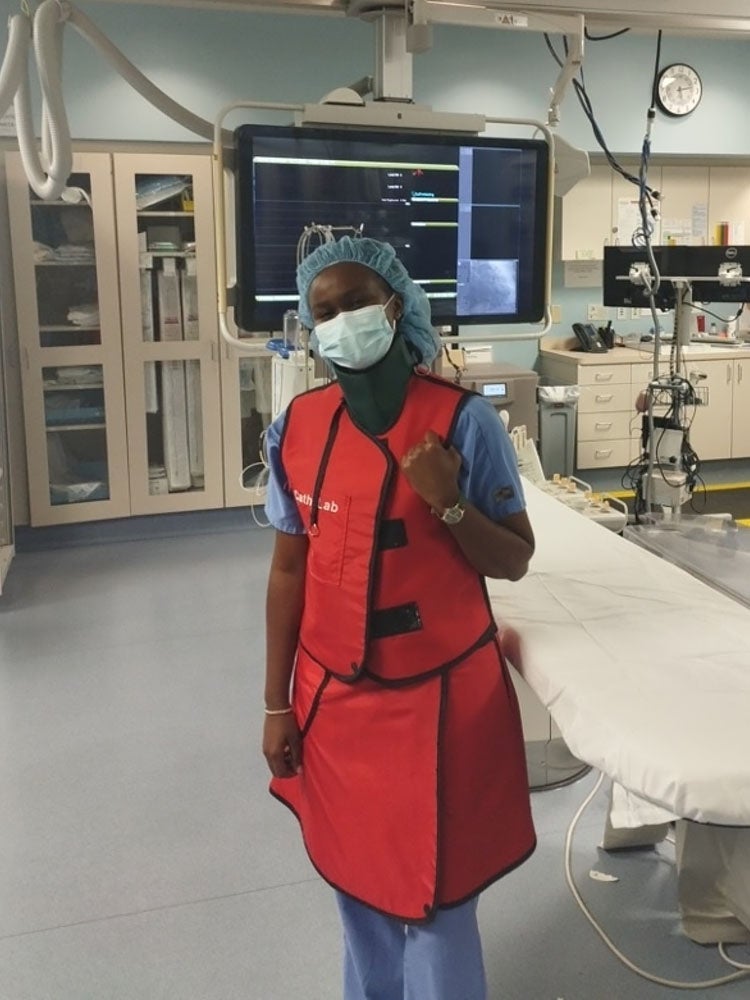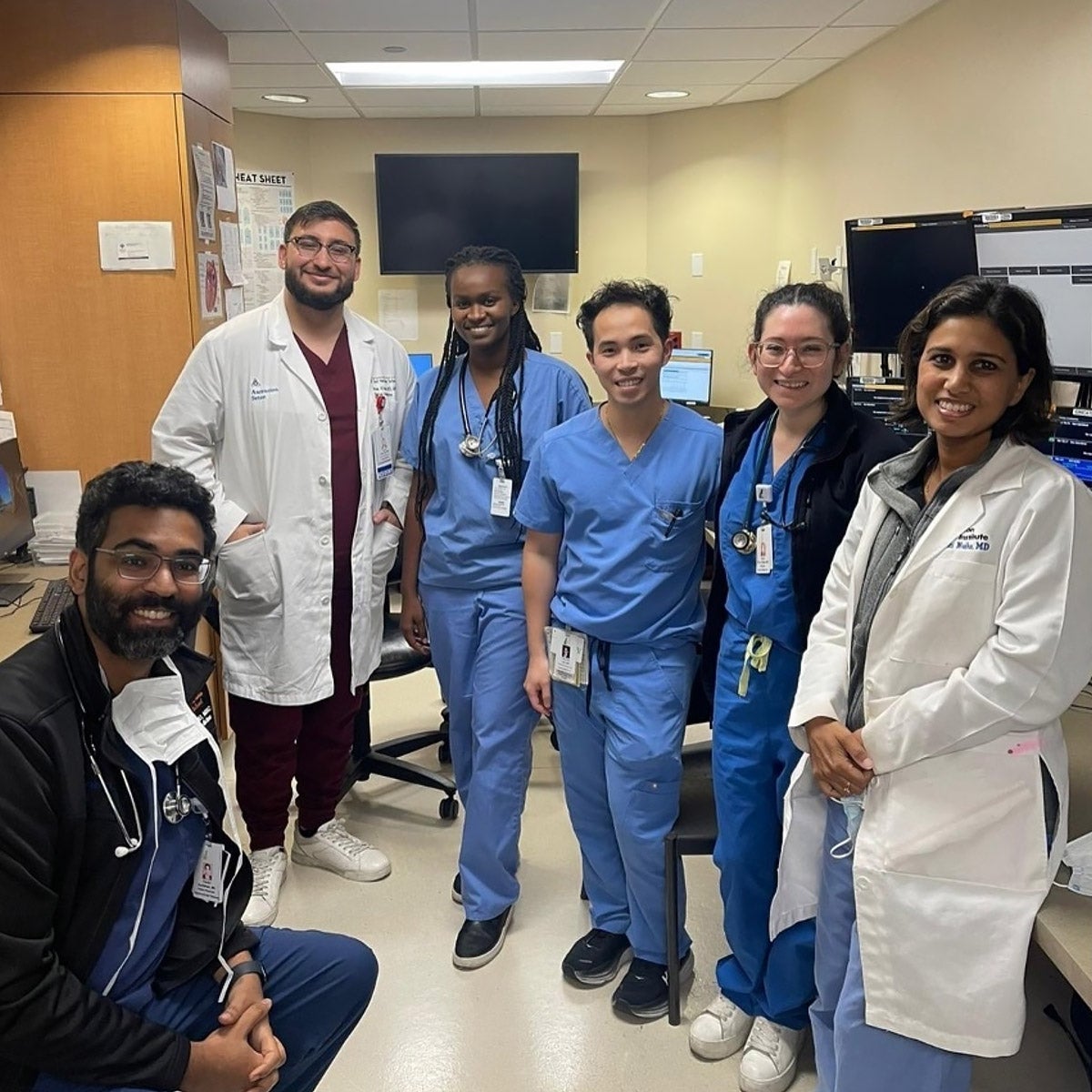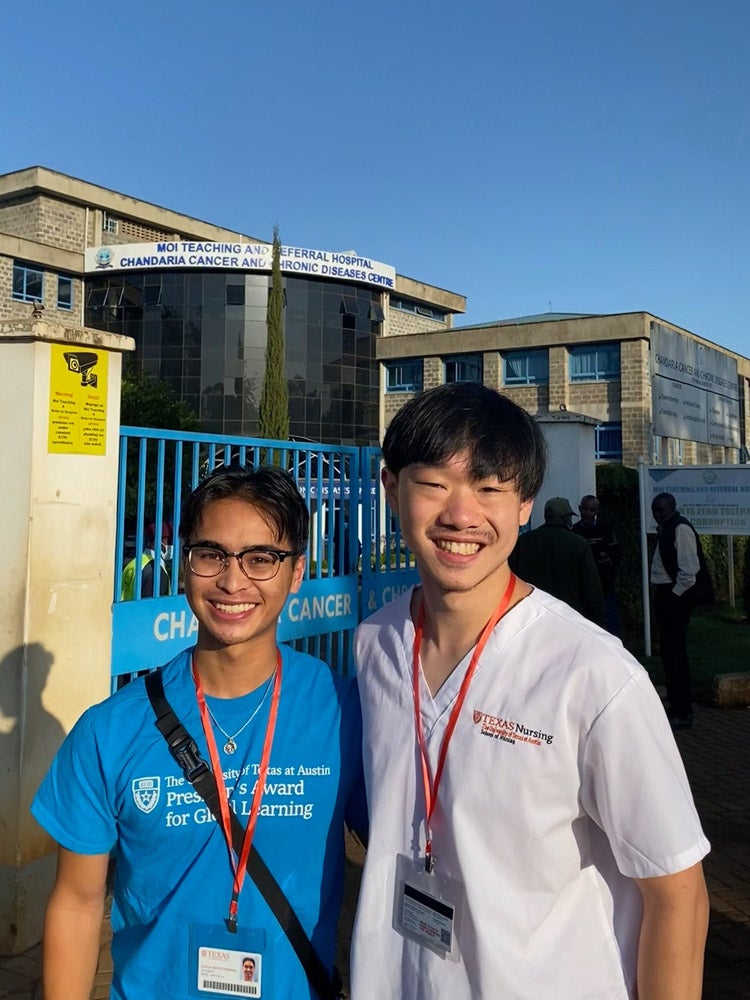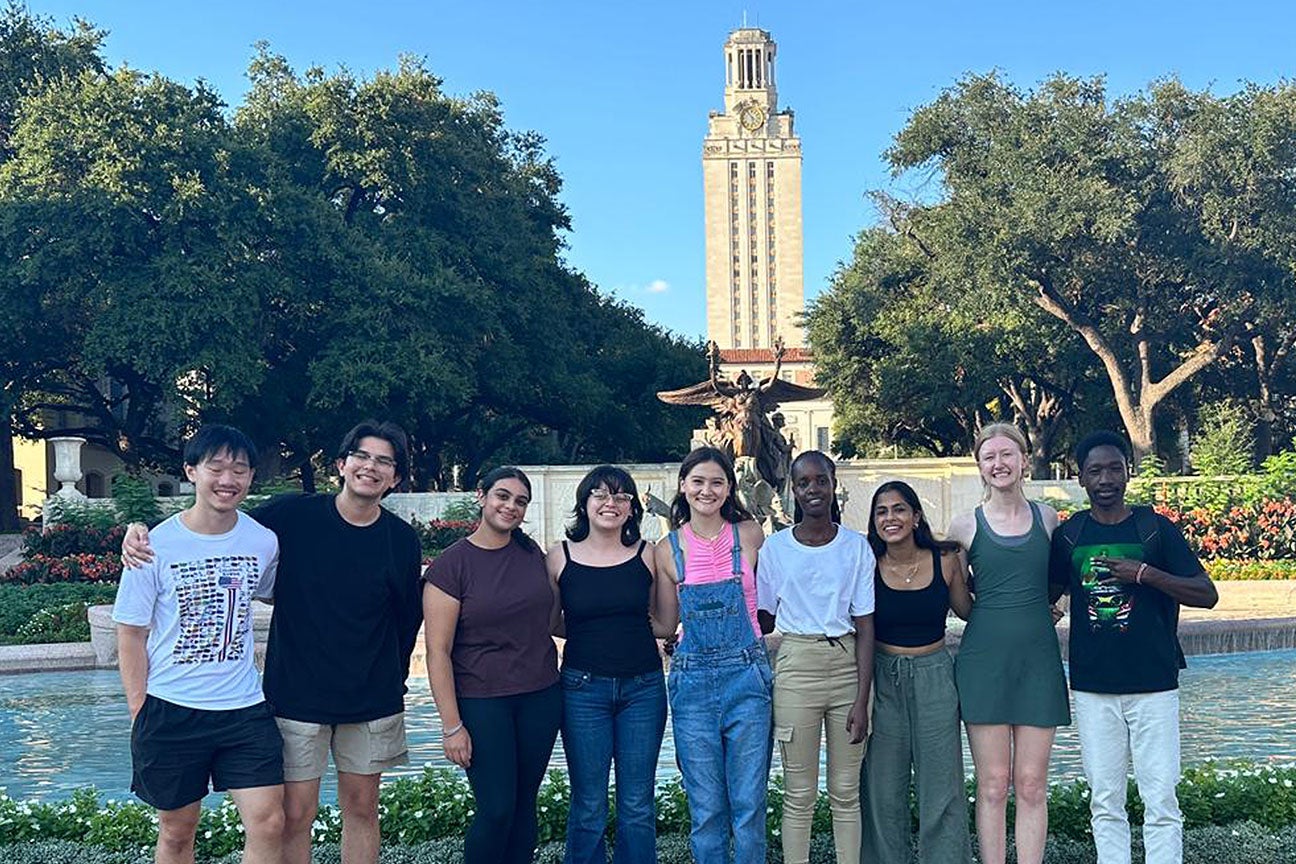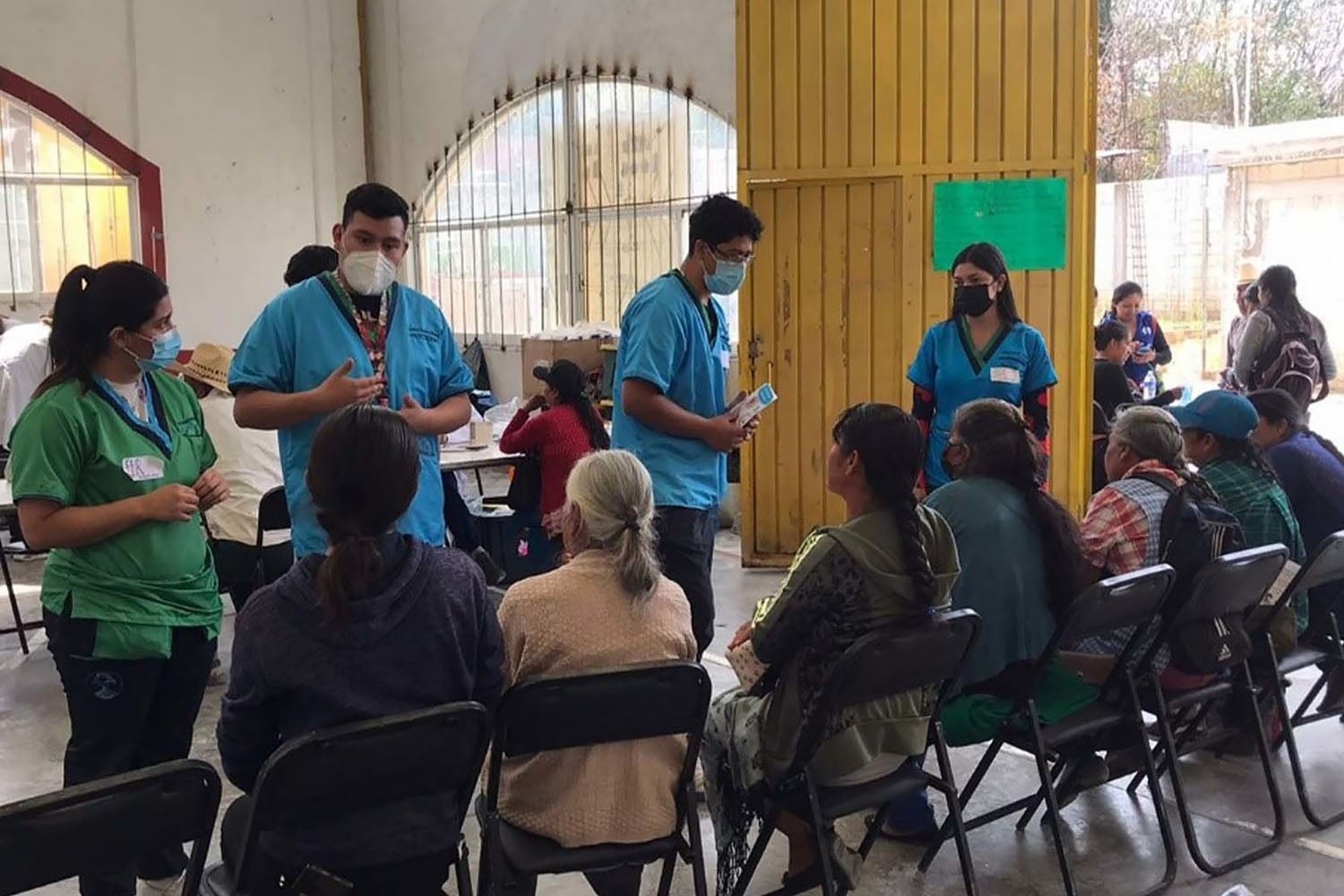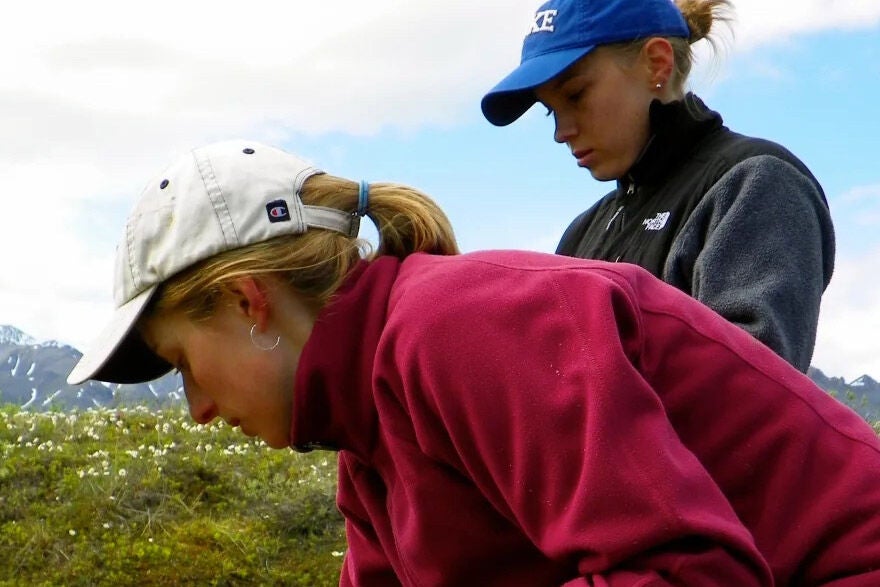Cockrell School of Engineering
Dell Medical School
Brain-Computer Interface Advances Machine Learning
Researchers at Dell Medical School have developed a brain-computer interface (BCI) that transforms cerebral activity into physical action, enabling users to move computer cursors — and even their own digits — using only conscious thought.
Lead researcher José del R. Millán, who holds positions in the Cockrell School of Engineering, Dell Medical School, and Texas Robotics, hopes this neurotechnology will improve the lives of patients suffering from strokes, cerebral accidents, or spinal cord injuries resulting in severe motor deficits.
Users wear an electrode-laden cap connected to a computer, measuring electrical signals from the brain. A decoder then translates that information into action. Typically, painstaking individual calibration has presented the major hurdle to mainstream adoption of BCI devices.
What sets the Dell Med research apart is the incorporation of machine-learning capabilities that quickly understand a user’s needs and self-calibrate through repetition, meaning multiple patients could use a device without lengthy calibration.
“This technology will make it so we won’t need a specialized team to do the calibration process, which is long and tedious,” said graduate researcher Satyam Kumar. “It will be much faster to move from patient to patient.”
The team is also working to incorporate similar BCI technology into a wheelchair. Read More
“The point of this technology is to help people ... in their everyday lives. We’ll continue down this path wherever it takes us in the pursuit of helping people.”
— José del R. Millán, Professor, Dell Medical School
School of Nursing
Researchers Explore LGBTQIA Health Care Disparities
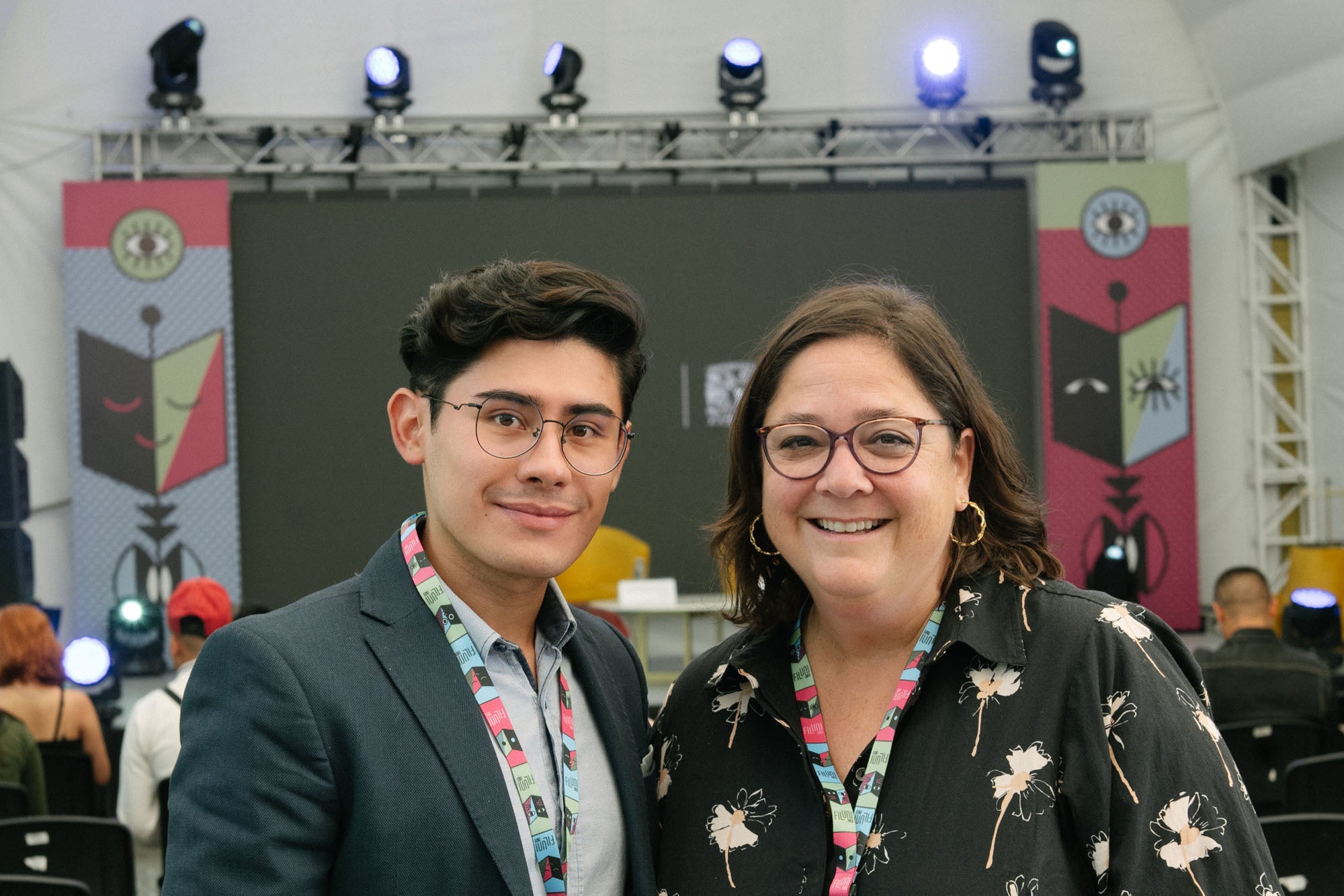
Julie Zuniga, associate professor in the School of Nursing, partnered with graduate researcher Oscar Franco-Rocha to interrogate numerous health disparities experienced by the LGBTQIA community in Latin America. Specifically examining social determinants of health for transgender communities, their work emphasized systemic impact and collective solutions.
The research began with identifying multiple social determinants of health in transgender communities but then transcended standard research limitations by proposing solutions to the disparities it found.
Zuniga and Franco-Rocha posited that human- level clinical interventions could provide the key to redressing several lapses in care commonly perpetrated upon trans populations — such as stigmatizing, misgendering, or deadnaming patients — in a health care system that was originally built to heal.
“We focus on health care disparities for the LGBTQ community, which is a healing problem in Latin America,” said Franco-Rocha. “Bringing attention to those issues … I think, will broaden perspectives and change ways of thinking.” Read More
“To have our partners be able to work not just with us but also within our greater network, it keeps people more connected. These global solutions can be used effectively in so many different settings to really improve people’s health outcomes for shared problems that occur all over the world.”
— Julie Zuñiga, Associate Professor, School of Nursing
Dell Medical School
School of Nursing
AMPATH Expands Global Health Care Access in Kenya, Mexico, and Beyond
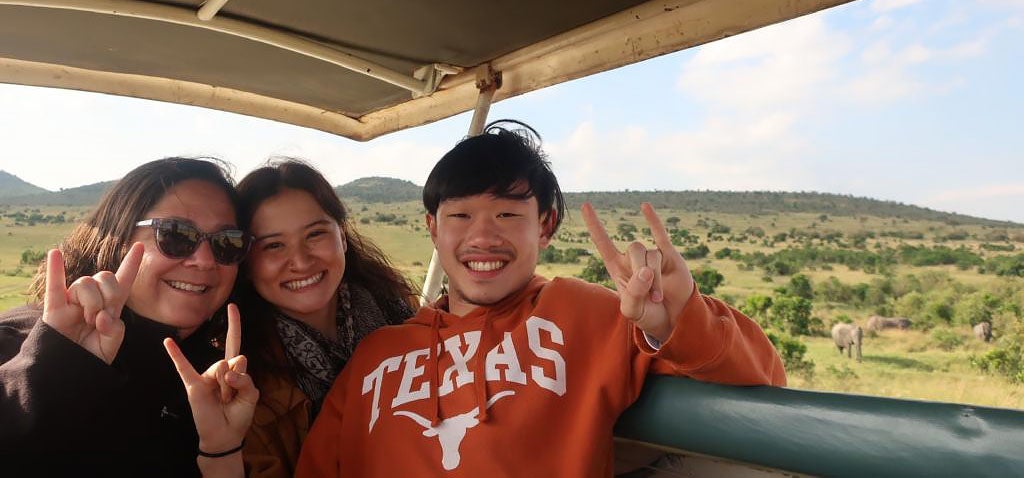
For remote communities without access to hospitals and medical research facilities, partners are crucial for maintaining public health. UT Austin’s School of Nursing, Dell Medical School, and Texas Global share resources and knowledge across the international health care community via the Academic Model Providing Access to Healthcare (AMPATH) initiative.
AMPATH is a global health partnership model designed to advance health equity and address the root causes of health disparities for communities around the world, utilizing clinical care, education, and research. The originating partnership expanded in 2001 to become the AMPATH Consortium, a network of 14 academic health centers coordinating medical trainee exchanges worldwide.
“Learning about global health is an important step toward eliminating health disparities. This program not only helps both Dell Med and Moi University students understand their role in patient care, but also the role of health systems, culture, socioeconomics and many other factors that span national boundaries in our increasingly globalized world.”
— Tim Mercer, Chief of the Division of Global Health, Dell Medical School
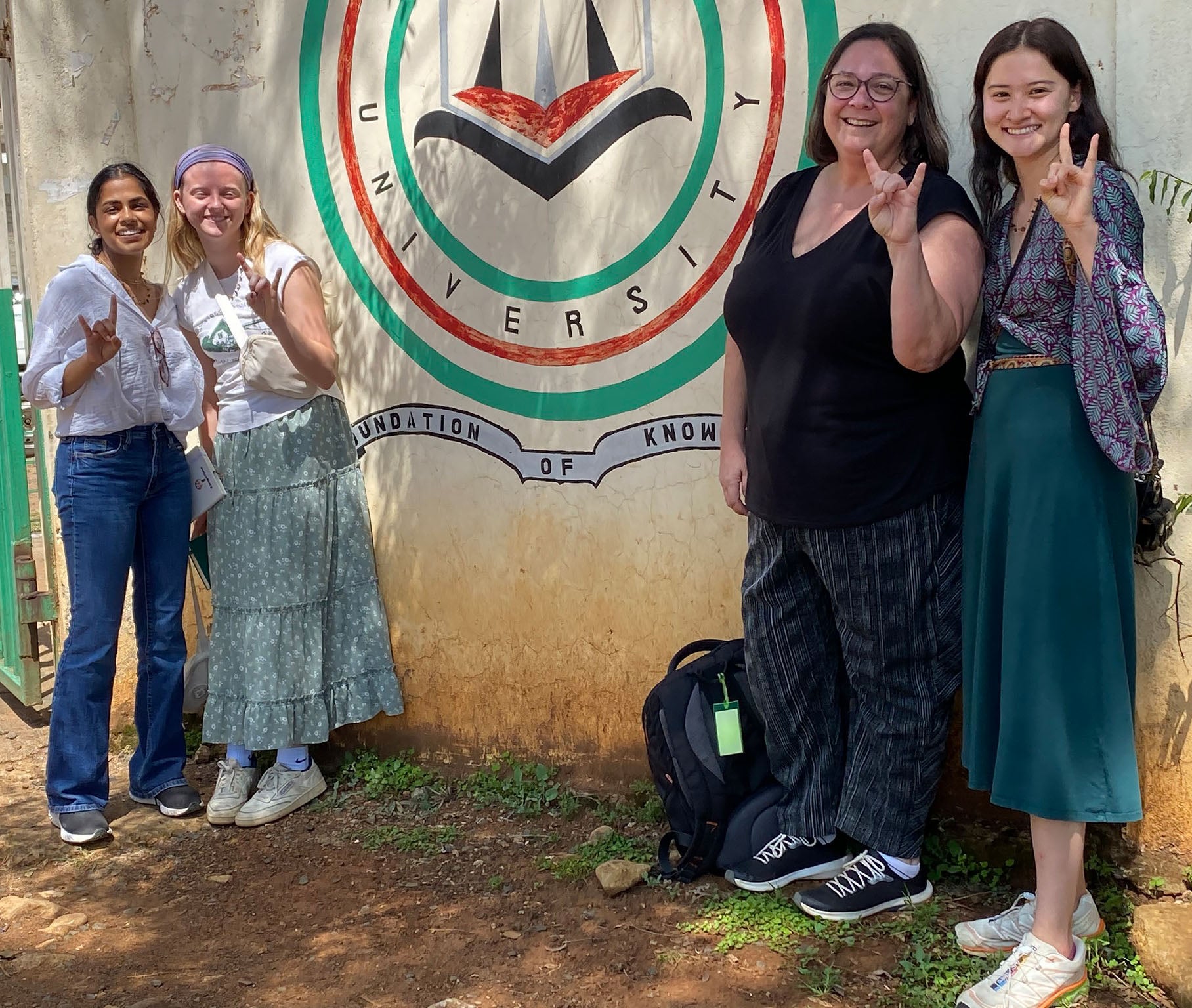
AMPATH Kenya
UT Austin joined the consortium in 2018 to participate in AMPATH Kenya, a bilateral exchange providing medical students and residents with hands-on experience at Moi University Teaching and Referral Hospital.
Collaborations between the two institutions continue today. In 2023, a project for UT’s interdisciplinary President’s Award for Global Learning took 13 Longhorn undergrads to Kenya as part of the consortium’s global collaboration. While there, the students embarked on a comprehensive wound care project with local medical students and residents.
Later that year, UT’s School of Nursing and Division of Global Health welcomed two Kenyan students to Austin for a six-week exchange. The visitors joined Dell Med students for clinical rotations in pediatrics, cardiology, and more. They observed simulation labs, visited UT’s Family Wellness Center, and presented findings from the wound care project to the Global Health Conference at the UT Medical Branch in Galveston. Read More
AMPATH México
In 2022, UT’s Global Health Program — a collaboration between Texas Global and the Department of Population Health at Dell Med — spearheaded the AMPATH México initiative in partnership with its longtime allies in the Puebla region: Benemérita Universidad Autónoma de Puebla and the State of Puebla Ministry of Health.
Launched with the objective of replicating the tenets and results of the Kenya program, AMPATH México established a focus on addressing shared challenges, expanding research infrastructure, and promoting health care access for vulnerable communities in both Texas and Mexico.
In 2023, a comprehensive health outreach event in Puebla officially established the program’s clinical care pillar, providing a crucial link between providers and community members by hosting patient consultations, health promotion talks, clinical consultations, physical therapy sessions, and more. Having served more than 1,600 people to date, the program’s eventual aim is to improve health care access and prevention efforts for the state’s population of 6.2 million. Read More
